Installation
Cet article concerne AdGuard pour Android, un bloqueur de publicités multifonctionnel qui protège votre appareil au niveau système. Pour voir comment il fonctionne, téléchargez l'application AdGuard
Configuration requise
Version du système d'exploitation : Android 9.0 ou supérieur
RAM : au moins 2 Go
Espace disque libre : 500 Mo
Installation
La plupart des applications basées sur Android sont distribuées via Google Play ; toutefois, AdGuard n'y est pas présenté, car Google interdit la distribution de bloqueurs d'annonces au niveau du réseau via Google Play, donc des applications qui bloquent les annonces dans d'autres applications. Vous trouverez plus d'informations sur la politique restrictive de Google dans notre blog.
C'est pourquoi vous ne pouvez installer AdGuard pour Android que manuellement. Pour utiliser l'app sur votre appareil mobile, vous devrez faire ce qui suit.
Téléchargez l'application sur votre appareil. Voici quelques façons de procéder :
- rendez-vous sur notre site Web et appuyez sur le bouton Télécharger
- démarrez le navigateur et saisissez l'URL suivante : https://adguard.com/apk
- ou scannez ce code QR :

Autorisez l'installation d'applications à partir de sources inconnues. Une fois le téléchargement du fichier terminé, appuyez sur Ouvrir dans la notification.
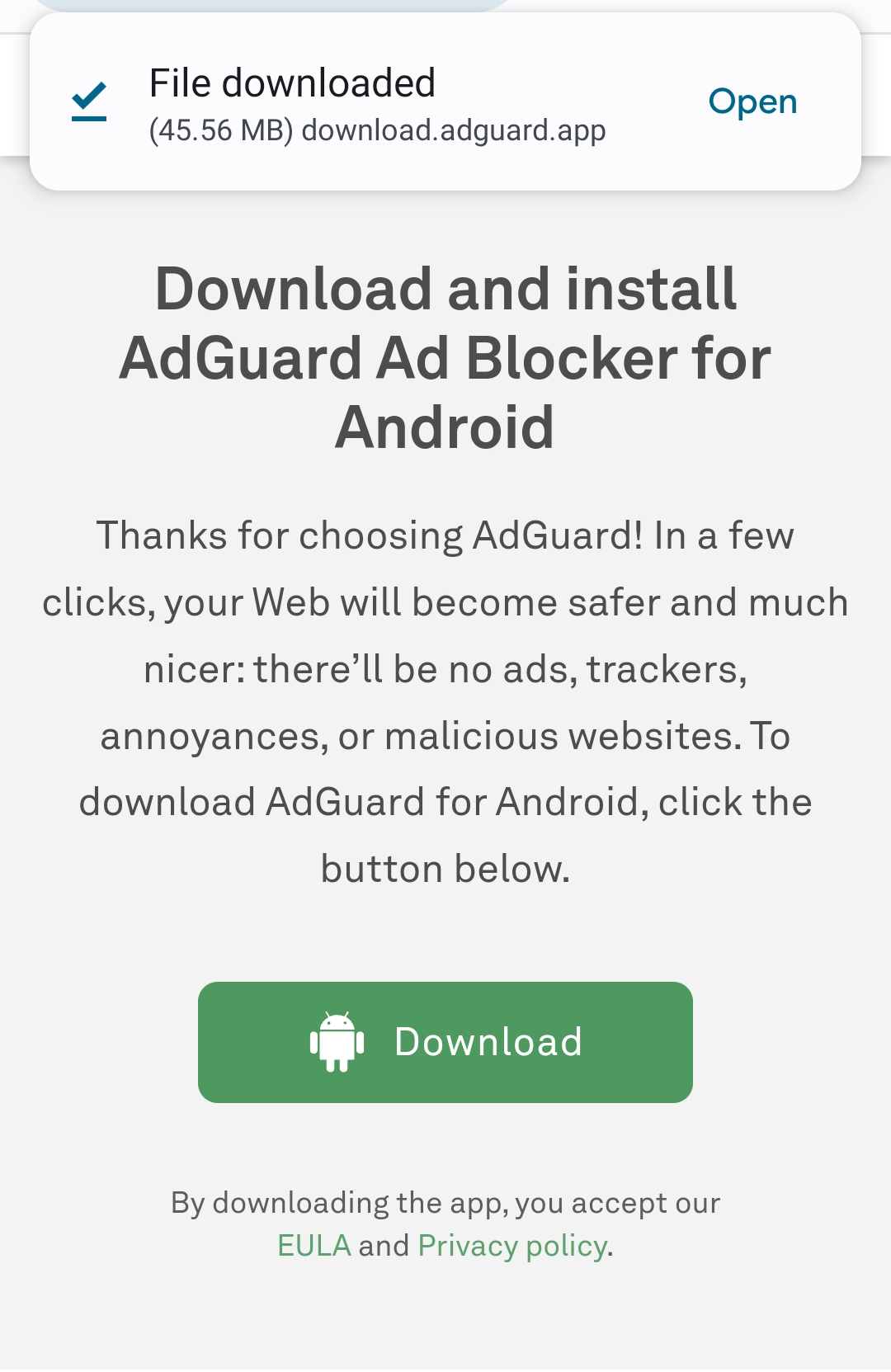
Un popup va apparaître. Appuyez sur Paramètres, naviguez vers Installer des applications inconnues et accordez l'autorisation pour le navigateur que vous avez utilisé pour télécharger le fichier.
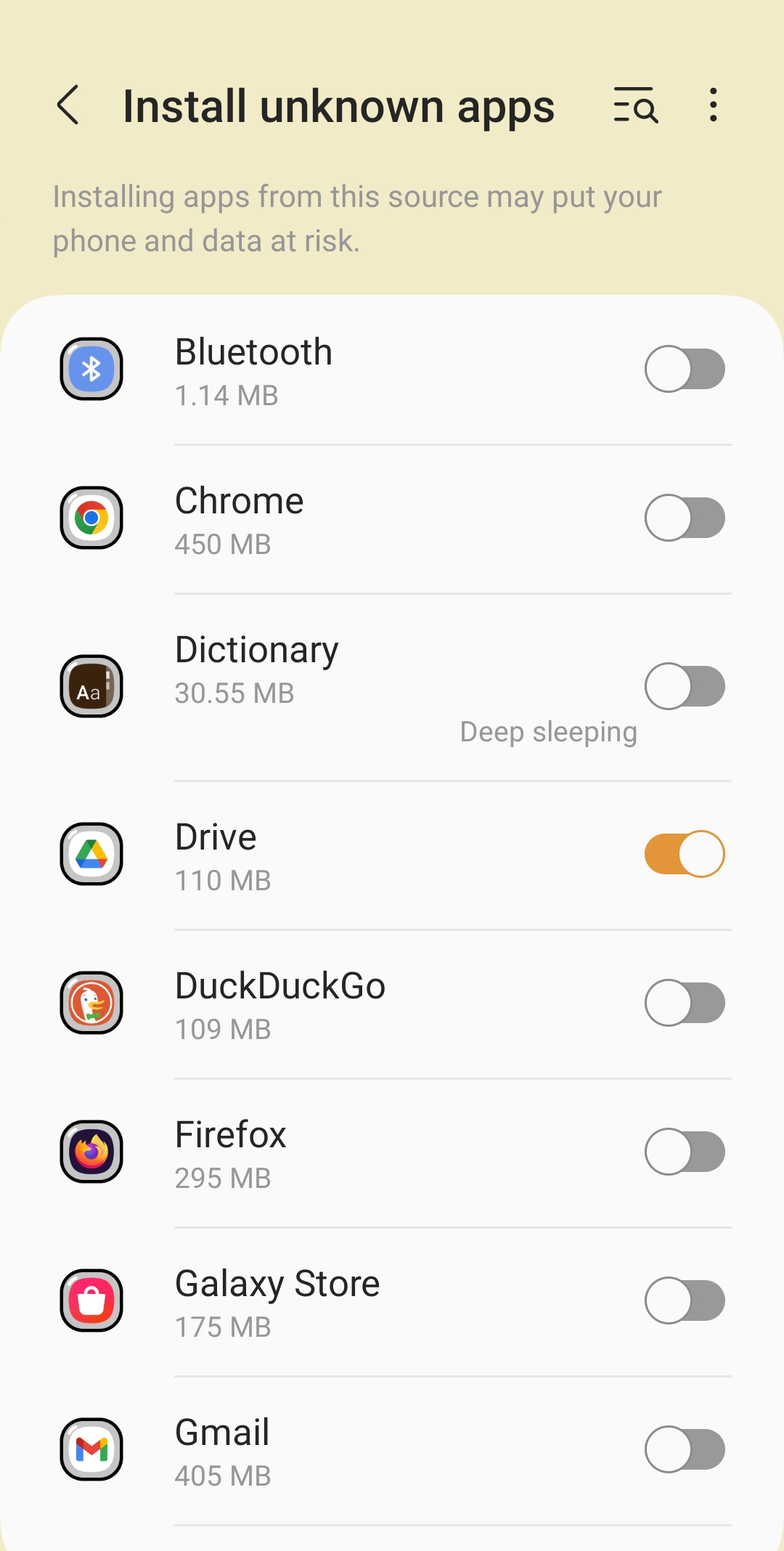
Installez l'application. Une fois que le navigateur a obtenu les autorisations nécessaires, le système vous demandera si vous souhaitez installer l'application AdGuard. Cliquez sur Installer.
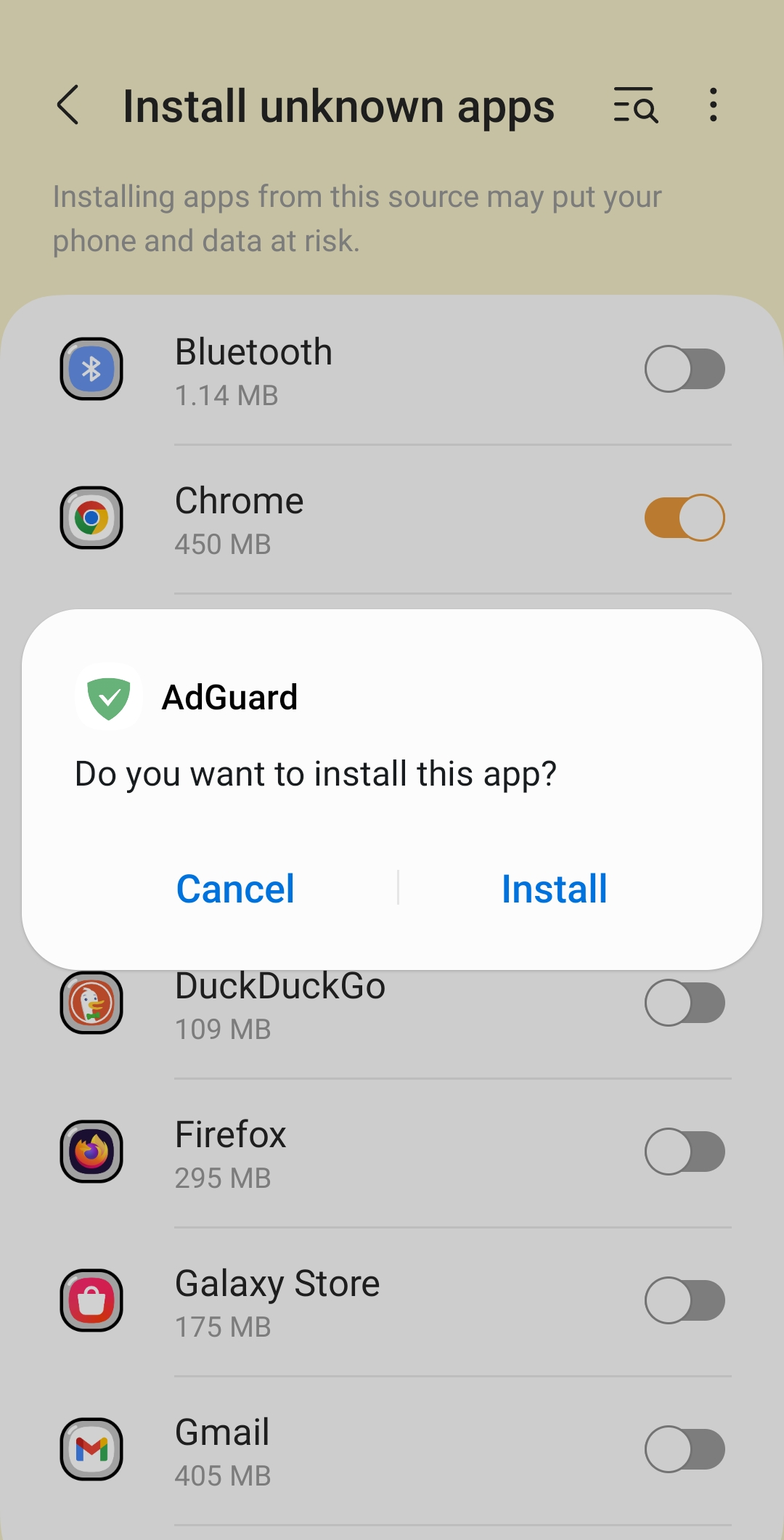
Vous serez ensuite invité à lire le Contrat de licence et la Politique de confidentialitéd'AdGuard. Vous pouvez également participer au développement du produit. Pour cela, cochez les cases pour Envoyer des rapports de plantage automatiques et Envoyer des données techniques et d'interaction. Cliquez ensuite sur Continuer.

Créez un VPN local. Pour filtrer tout le trafic directement sur votre appareil et de ne pas l'acheminer via un serveur distant, AdGuard doit établir une connexion VPN.
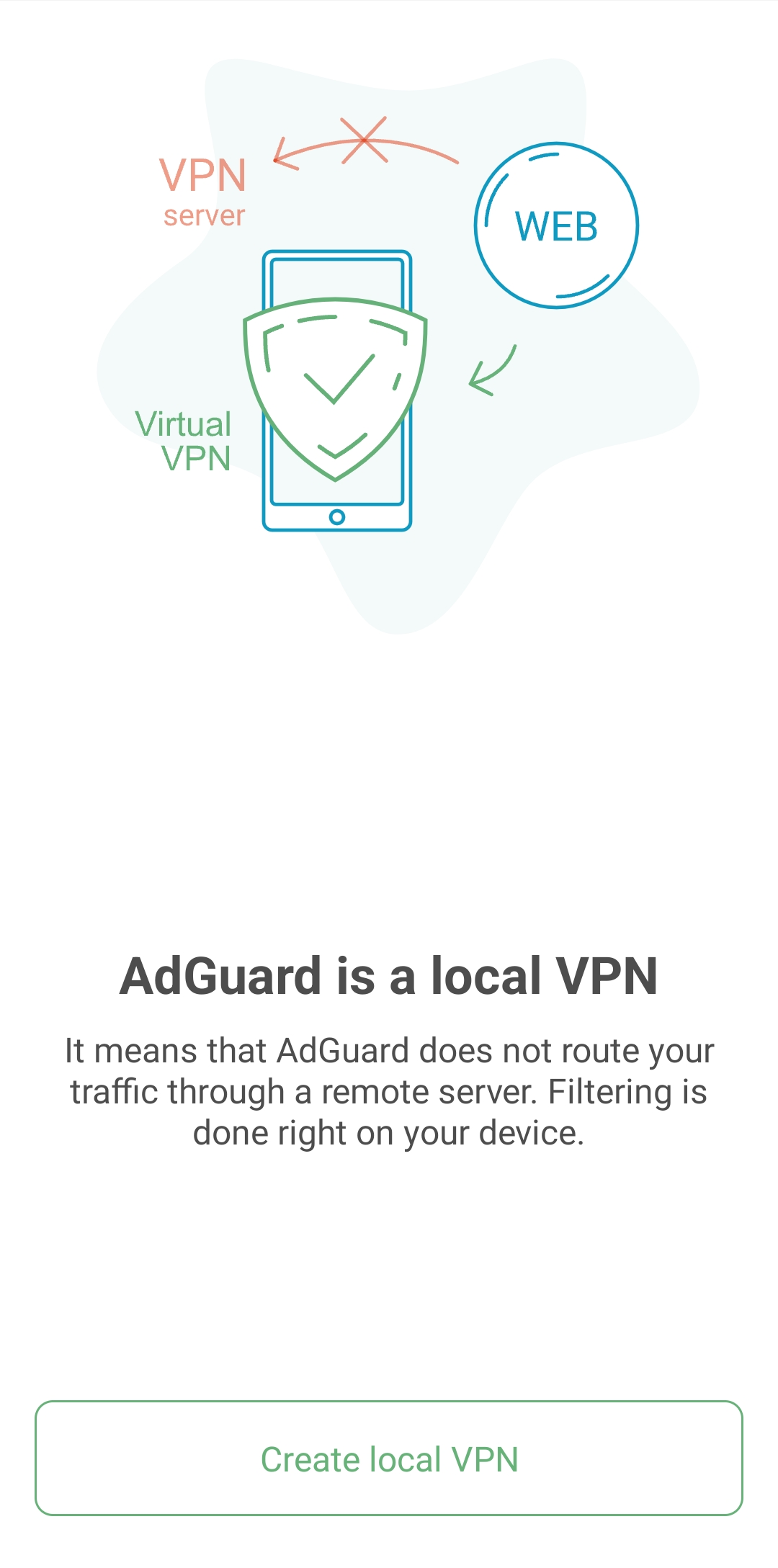
Activez le filtrage HTTPS. Ce n'est pas une option obligatoire, cependant, nous vous conseillons de l'activer pour une meilleure qualité de blocage des publicités.
Si votre appareil fonctionne sous Android 7–9, vous serez invité à installer un certificat racine et à configurer le filtrage HTTPS après la configuration du VPN local.
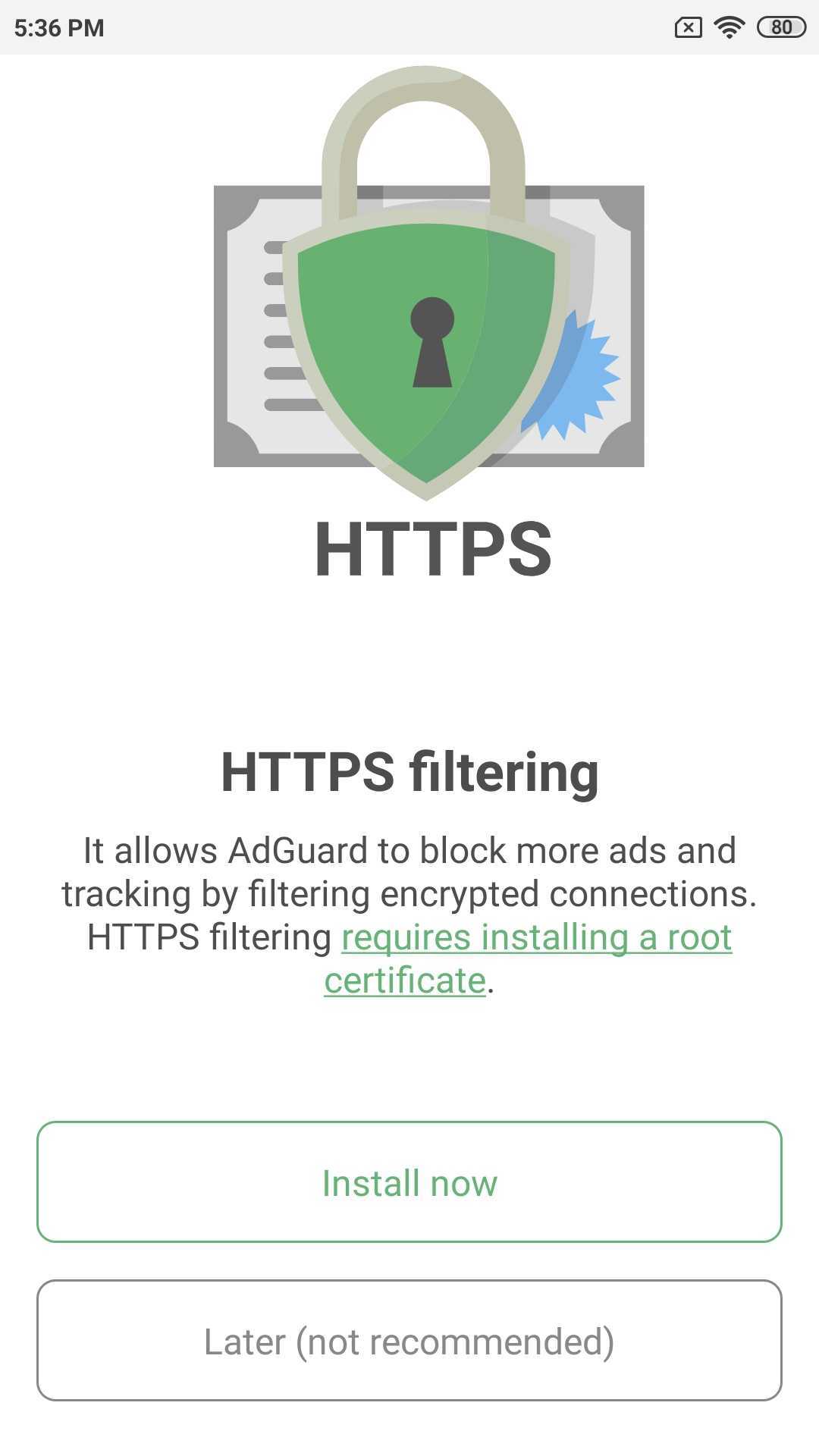
Après avoir tapé Installer maintenant, une invite apparaîtra vous demandant d'authentifier l'installation du certificat avec un mot de passe ou une empreinte digitale.
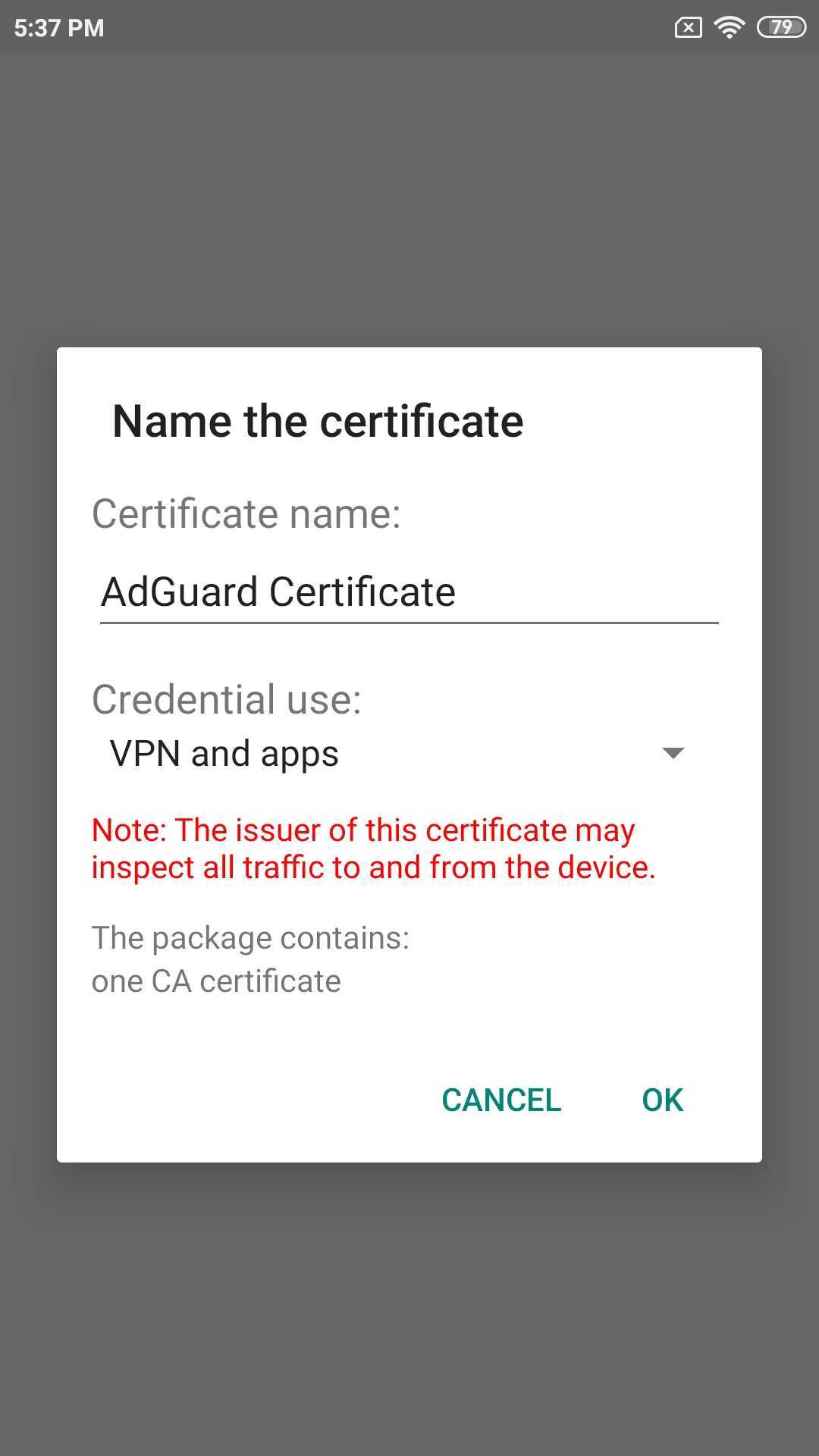
Si vous avez Android 10+ sur votre appareil, après avoir créé un VPN local, vous verrez l'écran principal de l'application avec une barre de notification en bas vous suggérant d'activer le filtrage HTTPS : appuyez sur Activer et suivez les instructions à l'écran suivant ou consultez l'article sur l'installation du certificat pour plus d'informations.
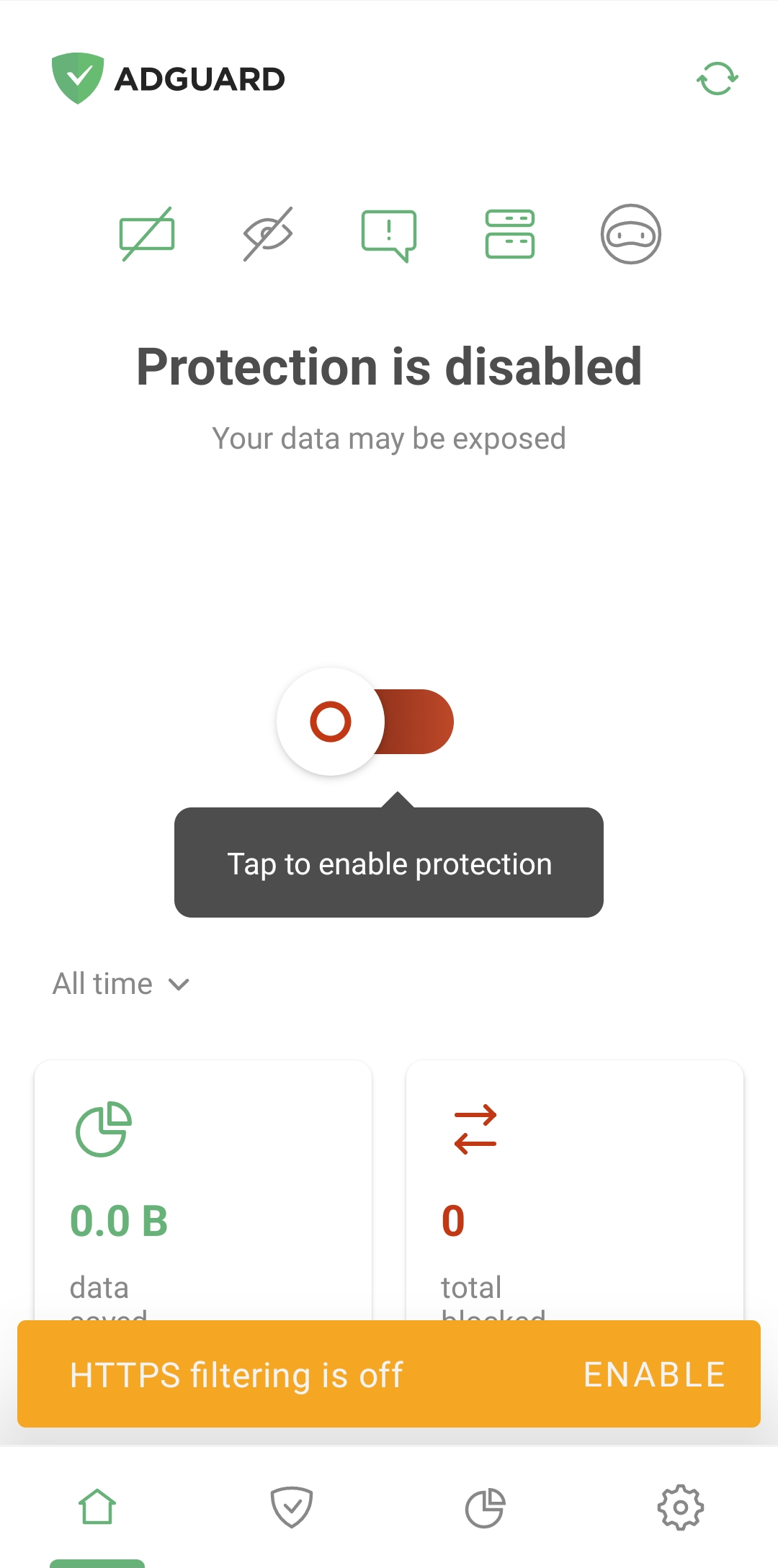
Désinstallation/Réinstallation d'AdGuard
Si vous devez désinstaller AdGuard sur votre appareil mobile, ouvrez Paramètres et choisissez Applications (Android 7) ou Applications & notifications (Android 8+). Trouvez AdGuard dans la liste des applications installées et appuyez sur Désinstaller.

Pour réinstaller AdGuard, il suffit de télécharger le fichier apk à nouveau et de suivre les étapes décrites dans la section Installation. Aucune désinstallation préalable n'est nécessaire.